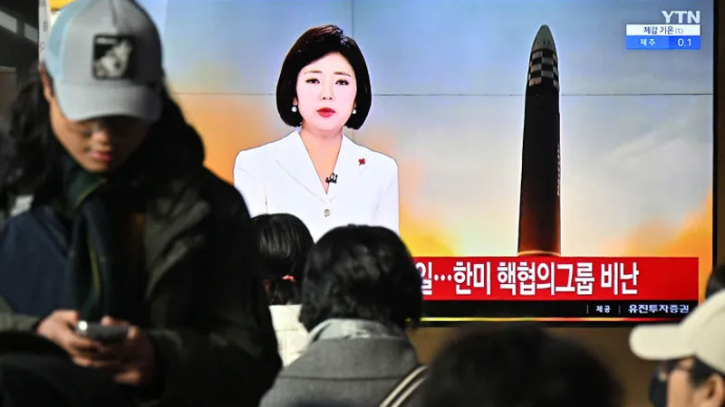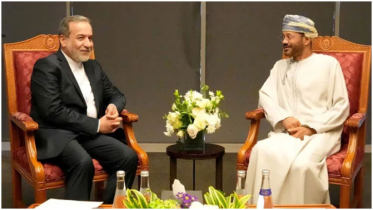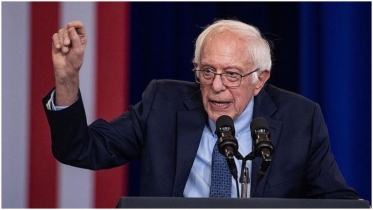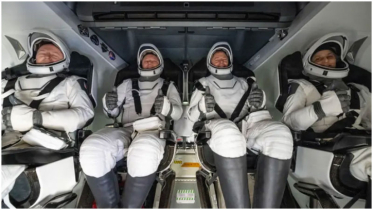N Korea resumes missile launches in ‘threat to peace and stability'

North Korea has resumed its record year of missile tests – launching a long-range ballistic missile capable of hitting the United States hours after firing a short-range weapon – in actions its neighbours condemned as a threat to global peace.
South Korea’s military said on Monday it had detected the launch of a long-range ballistic missile from the Pyongyang area that flew 1,000km (620 miles) before splashing down in the East Sea, also known as the Sea of Japan.
Japan’s defence ministry said it was an intercontinental ballistic missile (ICBM) with the potential capability of reaching anywhere in the US.
“The ICBM-class ballistic missile launched this time, if calculated based on the trajectory, depending on weight of warhead, could have a flying range of over 15,000km [9,320 miles],” said Shingo Miyake, the parliamentary vice minister of defence.
The short-range missile was also launched from the Pyongyang area towards the waters between the Korean Peninsula and Japan, with the test taking place at about 10:38pm (13:38 GMT), according to South Korea. The projectile flew for about 570km (354 miles) before falling into the ocean.
Japan’s Prime Minister Fumio Kishida, who called a meeting of his National Security Council, condemned the launches as “not only a clear violation of UN Security Council resolutions but also a threat to peace and stability of the region”.
South Korea said the launches were “a grave provocation” that threatened international peace.
The back-to-back launches came after South Korea and the US agreed to bolster their joint nuclear deterrence capabilities in the face of North Korea’s evolving nuclear threats. This year, Pyongyang has carried out a record number of weapons tests and launched a spy satellite as it moves ahead with leader Kim Jong Un’s plans to modernise North Korea’s military capabilities.
The US military said the launch highlighted “the destabilizing impact of [North Korea’s] illicit weapons program”.
Monday’s test was the fifth of an ICBM this year and the first since July when it launched a Hwasong-18.
The Hwasong-18, which was first tested in April, is North Korea’s first ICBM to use solid fuel, which makes it easier to transport and faster to launch than liquid-fuelled versions.
South Korea said it was analysing whether Monday’s launch was a solid-fuelled ICBM.
Nuclear deterrence
The launch came two days after the US and South Korea held their second session of the Nuclear Consultative Group in Washington, DC where they discussed nuclear deterrence in the event of conflict with North Korea.
A spokesperson for North Korea’s Defence Ministry on Sunday condemned the allies’ plans to expand annual joint military exercises next year to include a nuclear operation drill and warned of “a preemptive and deadly counteraction”.
“This is an open declaration on nuclear confrontation to make the use of nuclear weapons against the DPRK a fait accompli,” the statement carried by the KCNA news agency said, using the official acronym for North Korea.
“Any attempt to use armed forces against the DPRK will face a preemptive and deadly counteraction.”
All of North Korea’s ballistic missile activities are banned by United Nations Security Council (UNSC) resolutions, although Pyongyang insists they are part of its sovereign right to self-defence.
The missile launches also came as Pyongyang marked the anniversary of the death of leader Kim Jong Un’s father and predecessor Kim Jong Il, who died on December 17, 2011.
North Korea last year declared itself an “irreversible” nuclear power and has repeatedly said it will never give up its nuclear programme, which the regime views as essential for its survival.
The UNSC has adopted many resolutions calling on North Korea to halt its nuclear and ballistic missile programmes and imposed crippling sanctions since the country first conducted a nuclear test in 2006.
Washington and its allies have also expressed concerns about greater military cooperation between Pyongyang and Moscow after Kim travelled to Russia to meet its President Vladimir Putin in September.
They worry that Kim is providing badly-needed munitions to help Putin continue his war in Ukraine in exchange for Russian technological assistance for his modernisation plans.
.png)




